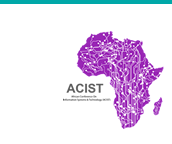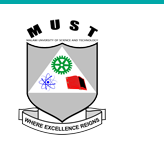Location
Harare, Zimbabwe and Virtual
Start Date
14-9-2023 3:00 PM
End Date
14-9-2023 3:30 PM
Description
The discourse on women's underrepresentation in science, technology, engineering, and mathematics (STEM) mainly centres on the global north, leaving a gap in understanding the perspectives of African women in STEM. To address this, a systematic literature review was conducted to explore African women's experiences in STEM careers and education. After applying inclusion and criteria, 18 published articles were analysed. 8 key issues emerge: work environment, education system, work-life balance, gender-based stereotypes, racial bias, sexual harassment, inadequate support/mentorship, and self-imposed limits. These themes intertwine, with some aspects influencing others. Grasping the complexities and interactions of these factors provides insights into challenges along the 'demand side' of the leaky pipeline. By addressing these challenges stakeholders can develop more targeted interventions to create a more inclusive environment and sustain the participation of African women in STEM fields. This research contributes to ongoing efforts to promote gender equality in STEM disciplines in Africa.
Included in
Higher Education Commons, Other Computer Engineering Commons, Science and Technology Studies Commons
Experiences of African women in STEM careers: A systematic literature review.
Harare, Zimbabwe and Virtual
The discourse on women's underrepresentation in science, technology, engineering, and mathematics (STEM) mainly centres on the global north, leaving a gap in understanding the perspectives of African women in STEM. To address this, a systematic literature review was conducted to explore African women's experiences in STEM careers and education. After applying inclusion and criteria, 18 published articles were analysed. 8 key issues emerge: work environment, education system, work-life balance, gender-based stereotypes, racial bias, sexual harassment, inadequate support/mentorship, and self-imposed limits. These themes intertwine, with some aspects influencing others. Grasping the complexities and interactions of these factors provides insights into challenges along the 'demand side' of the leaky pipeline. By addressing these challenges stakeholders can develop more targeted interventions to create a more inclusive environment and sustain the participation of African women in STEM fields. This research contributes to ongoing efforts to promote gender equality in STEM disciplines in Africa.



